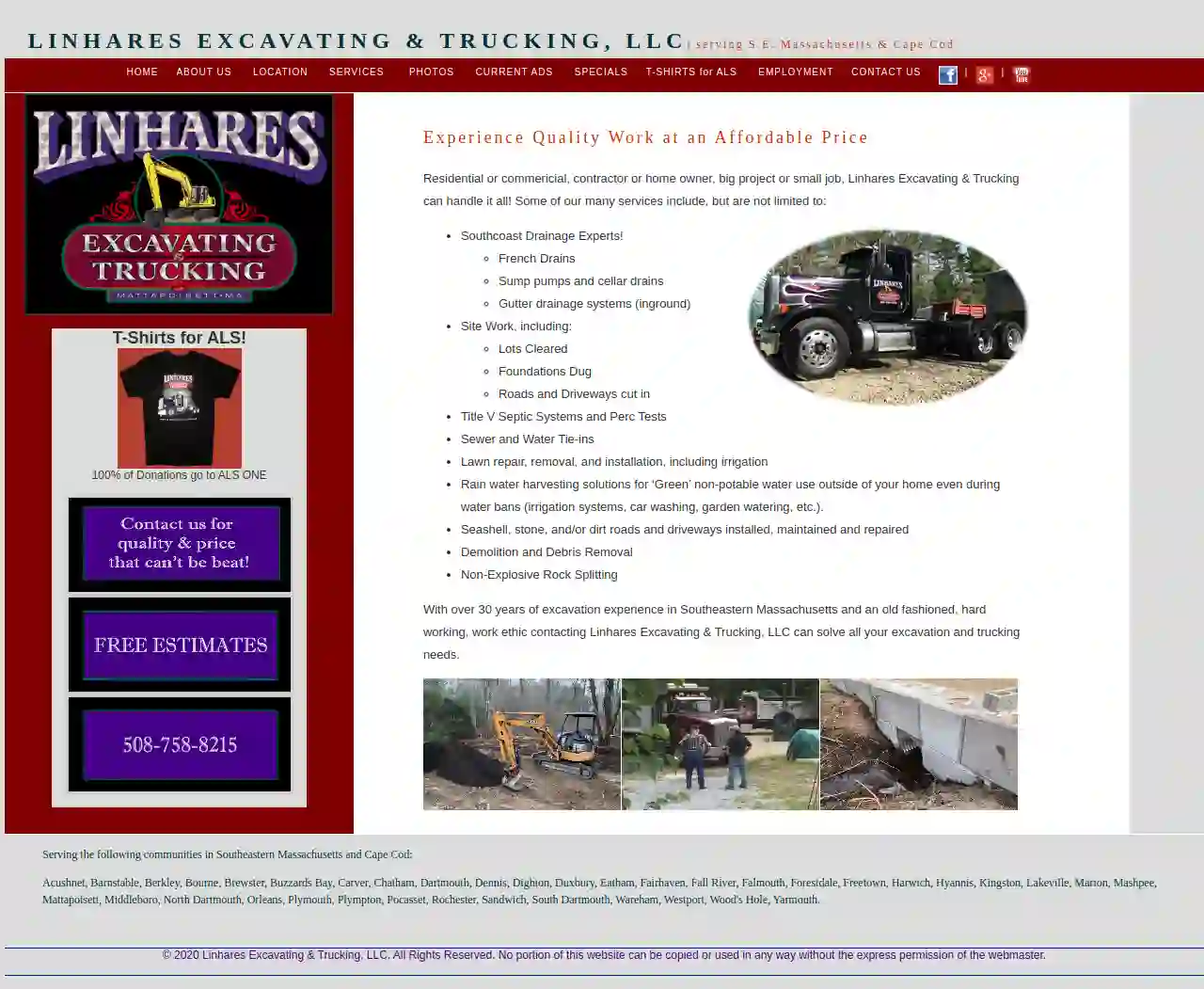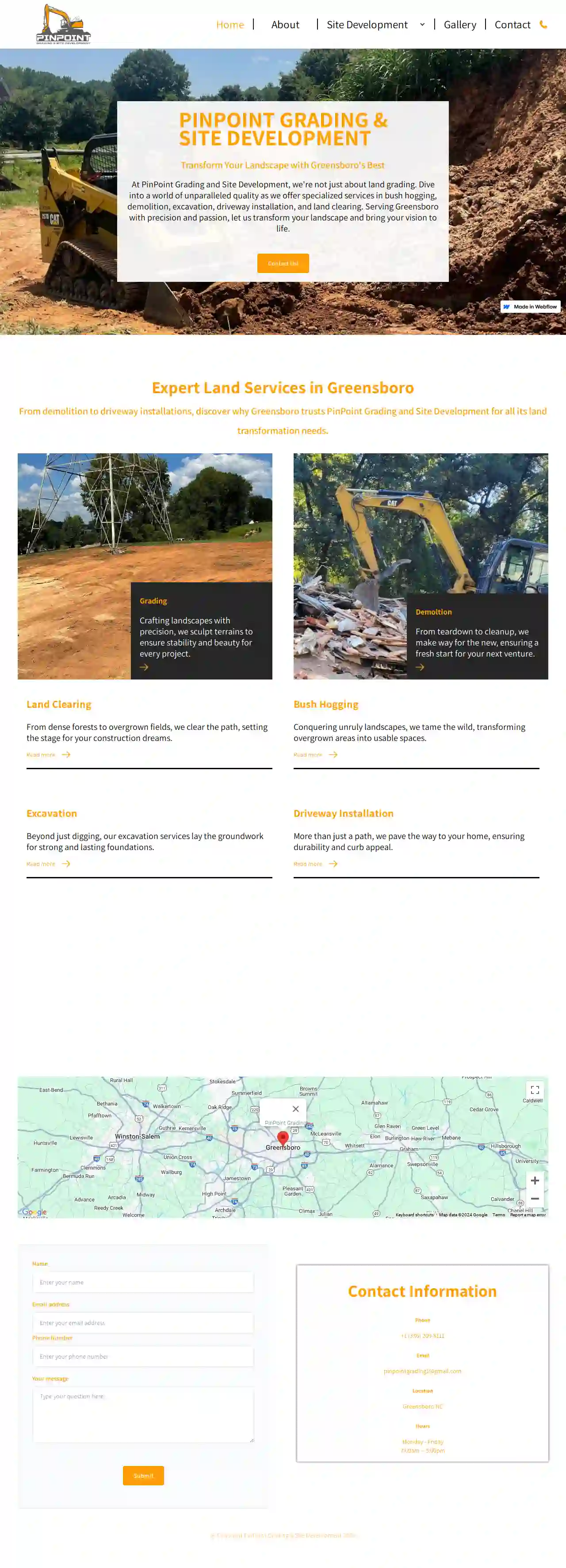Demolition Contractors Kent
Find top Building Demolition in Kent
Get up to 3 Demo Companies quotes for your project today! Compare profiles, reviews, accreditations, portfolio, etc... and choose the best offer.

Lehigh Construction Group, Inc.
4.26 reviews4327 S Taylor Road, Orchard Park, 14127, USProviding a full array of Construction, Maintenance and Repair Services to meet Client Construction Needs. A trusted commercial general contractor for Buffalo and WNY delivering construction services with two mainstay principles in mind: WORK HARD and TREAT PEOPLE RIGHT. Our team lives by these principles as we strive to deliver the best customer experience - safely & on-time. Smarter Solutions Providing clients with customized construction building services & emphasizing speed-to-market in an environment of trust, collaboration, and transparency for 40 years. Lehigh Project Building Repairs & Maintenance Lehigh PRO service vans are equipped to handle any small construction job. Lehigh PRO performs thousands of building repairs and facility maintenance jobs as one of Buffalo's trusted building repair and facility maintenance providers. Lehigh Pro Emergency Repairs Lehigh PRO emergency repair services provide quick-response maintenance & repair options. As general contractors, PRO crews take steps to ensure work is completed in a safe and timely manner. Lehigh Industrial Services Industrial Plant Small Construction The Lehigh Industrial Services team is fully equipped to handle any plant construction job and our industrial experience with concrete, steel & metal, masonry and sitework sets us apart. Customers include industrial manufacturing plants, chemical, pharmaceutical, agri-business and warehouse & distribution. Get to Know Lehigh Safety Safety is a Lehigh Core Value. Our philosophy remains unchanged – send everyone home safely to their family every day. We remain on the cutting edge of construction industry safety standards and practices by maintaining our commitment to training and educating employees so they perform in the safest manner possible. History Lehigh Construction Group, Inc. was founded in 1984 by Dave Knauss and Tom Glomb as commercial general contractors for Buffalo and Western New York businesses. Over 40 years later we have grown into one of Buffalo’s most trusted commercial general contractors, offering a full array of commercial construction services. From small scale building maintenance repairs to new-builds & plant additions, Lehigh provides expertise in all aspects of construction. Let us be your commercial general contractor.
- Services
- Why Us?
- Gallery
Get Quote
Linhares Excavating & Trucking, LLC
52 reviewsMattapoisett, USLinhares Excavating & Trucking, LLC: Your Trusted Partner for Excavation and Trucking Needs in Southeastern Massachusetts and Cape Cod For over 30 years, Linhares Excavating & Trucking, LLC has been a leading provider of excavation and trucking services in Southeastern Massachusetts and Cape Cod. We are a family-owned and operated business with a strong commitment to quality, customer satisfaction, and a dedication to providing our clients with the best possible experience. Whether you're a homeowner, contractor, or business owner, we have the expertise and resources to handle any project, big or small. Our team of experienced professionals is dedicated to providing you with the highest quality workmanship and exceptional customer service. We understand that your project is important to you, and we're committed to working with you every step of the way to ensure your complete satisfaction. We take pride in our commitment to safety and environmental responsibility. We use the latest equipment and techniques to ensure that all our projects are completed on time and within budget, while minimizing our impact on the environment. Contact us today for a free estimate and let us show you why Linhares Excavating & Trucking, LLC is the right choice for all your excavation and trucking needs.
- Services
- Why Us?
- Gallery
Get Quote
PinPoint Grading & Site Development
31 reviewsGreensboro, USAbout PinPoint Grading and Site Development PinPoint Grading and Site Development is Greensboro's premier land services provider. Rooted in the heart of North Carolina, we've built a reputation for transforming landscapes with precision and dedication. Our team, deeply connected to the Greensboro community, is committed to delivering unparalleled quality in every project, ensuring that visions turn into realities. Why Choose Us? Our team is a collective of highly-skilled professionals, each with years of specialized experience in the fields of civil engineering, landscape architecture, and land development. Their depth of knowledge ensures that your project is in the most capable hands. We don't just meet industry standards, we aim to exceed them. Our commitment to quality is unwavering, ensuring that every service we provide is executed with the utmost precision and excellence. Integrity is at the core of what we do. From the initial consultation to the final invoice, we maintain complete transparency in all our operations and pricing, so you can trust that there are no hidden fees or surprises.
- Services
- Why Us?
- Gallery
Get Quote
Site Right Excavation, LLC
123 Main Street, Anytown, 12345, USSite Right Excavation: Your Trusted Partner for Excavation Services Site Right Excavation is a family-owned and operated business with over 20 years of experience in the excavation industry. We are committed to providing our clients with high-quality, reliable, and affordable excavation services. Our team of experienced professionals is dedicated to exceeding your expectations and delivering exceptional results. We understand that every project is unique, and we take the time to listen to your needs and develop a customized plan that meets your specific requirements. Whether you need site preparation, foundation excavation, utility installation, or any other excavation service, we have the expertise and equipment to get the job done right. At Site Right Excavation, we are committed to safety and environmental responsibility. We use the latest technology and equipment to ensure that our projects are completed safely and efficiently. We also strive to minimize our environmental impact by using sustainable practices and recycling materials whenever possible. Contact us today to schedule a free consultation and learn more about how we can help you with your next excavation project.
- Services
- Why Us?
- Testimonials
Get Quote
RND Construction
54 reviewsLocust Grove, Virginia, USServing Fredericksburg, VA & Surrounding Communities for Over 40 Years At RND Construction, we offer top tier excavation, land clearing and commercial construction services. We work diligently to meet our customer’s needs while adhering to industry standards in quality and safety. We are committed to completing our work with diligence and with extreme attention to detail. RND Construction is your top choice when it is time for your next job. Contact us today, our team is waiting to assist you! Expert & Professional Services Here at RND Construction we provide comprehensive services for homeowners and business owners across Fredericksburg, Virginia and the surrounding communities. We are experts in our field and are dedicated to providing superior workmanship and customer support. With over 40 years of professional experience, customer satisfaction is always our top priority.
- Services
- Why Us?
- Testimonials
- Gallery
Get Quote
New Bridge Contracting Corp
52 reviews123 Newbridge Ave, Toronto, M4W 2P3, USAbout Newbridge Contracting Inc. Newbridge Contracting Inc. is a reputable and experienced general contracting company serving the Greater Toronto Area. We are dedicated to providing high-quality construction services for both residential and commercial clients. Our team of skilled professionals is committed to delivering projects on time and within budget, while maintaining the highest standards of workmanship. We understand that building or renovating your home or business is a significant investment. That's why we take a personalized approach to every project, working closely with our clients to ensure their vision is realized. From initial planning and design to final construction and completion, we are with you every step of the way. At Newbridge Contracting Inc., we pride ourselves on our commitment to customer satisfaction. We believe in building lasting relationships with our clients, based on trust, transparency, and open communication. We are confident that you will be pleased with the results of your project.
- Services
- Why Us?
Get Quote
Cuts Plus Landscaping & Excavating
511 reviewsBronx, USAbout Our Business Cuts Plus Landscaping was founded in 2013 by Rob and Ben Waller to achieve the best local customer relations while providing professionalism, trust, and outstanding craftsmanship. We focus on quality rather than quantity, which sets us apart from our competition. Our small-scale father-and-son business can complete any job that a large-scale company offers, but with the added benefit of personalized attention and care. Our Company's Approach When you contact us, we send over our expert team to your site to analyze the area and construct the perfect strategy to design it. Cuts Plus Landscaping procures the best material, equipment, and training to ensure the best result for your project allowing our hard work to meet or exceed your expectations. For our customers, we want to provide the best quality products and services. Taking pride in what we do makes attention to detail a priority for our employees. By employing professional and knowledgeable staff members, it allows our craftsmanship to prevail day in and day out.
- Services
- Why Us?
- Gallery
Get Quote
TPL Grading and Excavating
56 reviewsHigh Point, NC, 27265, USTPL Grading and Excavating: Your Premier Grading & Excavating Contractor in the Piedmont TPL Grading and Excavating is a trusted and experienced grading and excavating contractor serving the Piedmont Triad area of North Carolina. We specialize in a wide range of services, including: Grading Excavating Lot Clearing Land Clearing Land Management Our team of skilled professionals is dedicated to providing high-quality workmanship and exceptional customer service. We are committed to exceeding your expectations and delivering projects on time and within budget. Whether you're a homeowner, builder, or developer, we have the expertise and resources to handle your project from start to finish. Contact us today for a free estimate and let us help you bring your vision to life.
- Services
- Why Us?
- Gallery
Get Quote
Santucci Construction
4.812 reviews15 Travis Ln, 15 Travis Lane, Montrose, 10548, USThe Septic system Experts for more than 40 years. Santucci Construction Corp. places expertise and customer care above all else. For more than four decades, our specialists have provided skilled, responsible drainage, excavation and septic system maintenance throughout the Westchester and Putnam Counties area. Request Estimate More About Us How Can We help? The thoroughly experienced team at Santucci Construction is available to personally guide your needs. From property consultations to a full range of septic, drainage, and excavation services, we confidently advise the most innovative and effective enhancements for your unique home. As a family-run business for nearly half a century, our specialists are dedicated to precision, care, and direct customer collaboration.
- Services
- Why Us?
- Testimonials
- Gallery
Get Quote- Mc
McNeight Excavating
4.824 reviewsBuffalo, USWe are a family-owned and operated excavating company serving the [CITY] area. We have been in business for over 20 years and have a proven track record of providing high-quality services at competitive prices. We specialize in a wide range of excavating services, including site preparation, foundation work, utility installation, and more. We are committed to providing our clients with the highest level of customer service and satisfaction. We are fully insured and bonded, and we use only the latest equipment and technology to ensure that all of our projects are completed on time and within budget. Contact us today for a free estimate.
- Services
- Why Us?
- Gallery
Get Quote
Over 22,076+ Excavation Contractors on our directory
Our excavation companies operate in Kent & surrounding areas!
ExcavationHQ has curated and vetted the Best Excavation Pros arround Kent. Find the most reliable business today.
Frequently Asked Questions About Demolition Contractors
- Permits and Regulations: Obtain all necessary demolition permits and comply with local building codes and environmental regulations.
- Contracts: Have a clear and comprehensive contract with the demolition contractor outlining the scope of work, payment terms, and liabilities.
- Environmental Laws: Comply with environmental laws regarding hazardous material removal, waste disposal, and pollution control.
- Neighboring Property Rights: Respect neighboring property rights and take measures to prevent damage or disruption to adjacent properties.
- Worker Safety: Adhere to worker safety regulations and provide a safe working environment for demolition crews.
- Size and Complexity of the Structure: Larger and more complex structures, such as multi-story buildings, require more time, labor, and specialized equipment, increasing costs.
- Type of Demolition: Different demolition methods, such as implosion, wrecking ball, or high-reach demolition, have varying costs.
- Material Disposal: Disposal fees for demolition debris can contribute significantly to the overall cost, depending on the type and quantity of materials.
- Location and Accessibility: Demolition in densely populated areas or with limited access may require more planning and specialized equipment, affecting costs.
- Hazardous Materials: The presence of asbestos, lead paint, or other hazardous materials requires specialized removal and disposal procedures, adding to the expenses.
- 'Can I see proof of your licensing and insurance?' Verify their credentials and coverage.
- 'What experience do you have with projects like mine?' Ensure they have relevant expertise.
- 'Can you provide references from past clients?' Check their reputation and customer satisfaction.
- 'What are your safety protocols?' Prioritize contractors who emphasize safety.
- 'How will you handle hazardous materials?' Ensure they have proper procedures for asbestos or lead abatement.
- 'What is your timeline for completing the project?' Understand the project duration.
- 'How will you manage noise, dust, and debris?' Discuss mitigation measures for minimizing disruption.
- 'What are your payment terms?' Clarify payment schedules and any required deposits.
- Waste Generation: Demolition generates a large volume of debris, contributing to landfill space and potentially releasing harmful substances into the environment if not disposed of properly.
- Air Pollution: Dust and particulate matter released during demolition can impact air quality, affecting human health and the environment.
- Noise Pollution: Demolition activities can generate significant noise, disturbing nearby residents and wildlife.
- Resource Depletion: Demolition consumes resources that could be salvaged and reused, contributing to resource depletion and environmental degradation.
What are the legal considerations for demolition projects?
How much does demolition cost in the USA?
What questions should I ask a demolition contractor before hiring them?
What are the environmental impacts of demolition?
What are the legal considerations for demolition projects?
- Permits and Regulations: Obtain all necessary demolition permits and comply with local building codes and environmental regulations.
- Contracts: Have a clear and comprehensive contract with the demolition contractor outlining the scope of work, payment terms, and liabilities.
- Environmental Laws: Comply with environmental laws regarding hazardous material removal, waste disposal, and pollution control.
- Neighboring Property Rights: Respect neighboring property rights and take measures to prevent damage or disruption to adjacent properties.
- Worker Safety: Adhere to worker safety regulations and provide a safe working environment for demolition crews.
How much does demolition cost in the USA?
- Size and Complexity of the Structure: Larger and more complex structures, such as multi-story buildings, require more time, labor, and specialized equipment, increasing costs.
- Type of Demolition: Different demolition methods, such as implosion, wrecking ball, or high-reach demolition, have varying costs.
- Material Disposal: Disposal fees for demolition debris can contribute significantly to the overall cost, depending on the type and quantity of materials.
- Location and Accessibility: Demolition in densely populated areas or with limited access may require more planning and specialized equipment, affecting costs.
- Hazardous Materials: The presence of asbestos, lead paint, or other hazardous materials requires specialized removal and disposal procedures, adding to the expenses.
What questions should I ask a demolition contractor before hiring them?
- 'Can I see proof of your licensing and insurance?' Verify their credentials and coverage.
- 'What experience do you have with projects like mine?' Ensure they have relevant expertise.
- 'Can you provide references from past clients?' Check their reputation and customer satisfaction.
- 'What are your safety protocols?' Prioritize contractors who emphasize safety.
- 'How will you handle hazardous materials?' Ensure they have proper procedures for asbestos or lead abatement.
- 'What is your timeline for completing the project?' Understand the project duration.
- 'How will you manage noise, dust, and debris?' Discuss mitigation measures for minimizing disruption.
- 'What are your payment terms?' Clarify payment schedules and any required deposits.
What are the environmental impacts of demolition?
- Waste Generation: Demolition generates a large volume of debris, contributing to landfill space and potentially releasing harmful substances into the environment if not disposed of properly.
- Air Pollution: Dust and particulate matter released during demolition can impact air quality, affecting human health and the environment.
- Noise Pollution: Demolition activities can generate significant noise, disturbing nearby residents and wildlife.
- Resource Depletion: Demolition consumes resources that could be salvaged and reused, contributing to resource depletion and environmental degradation.